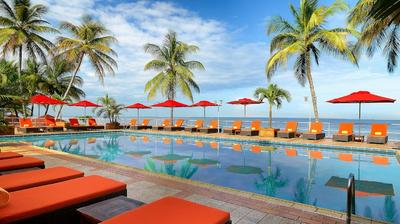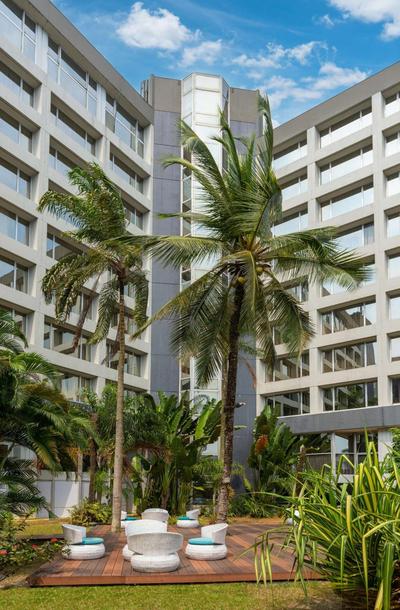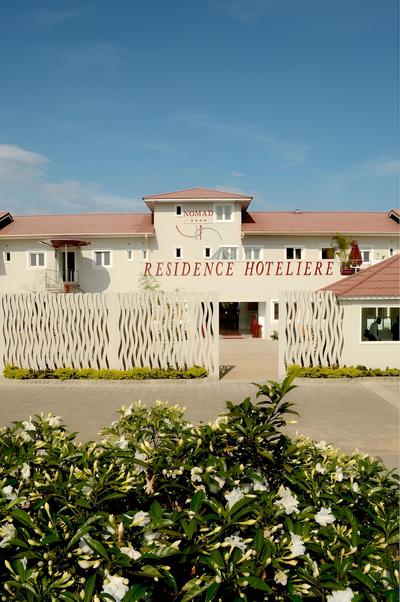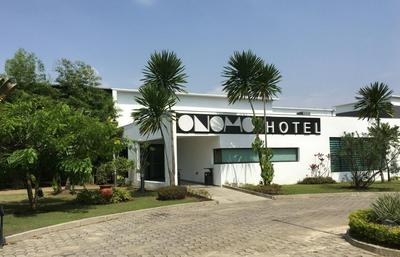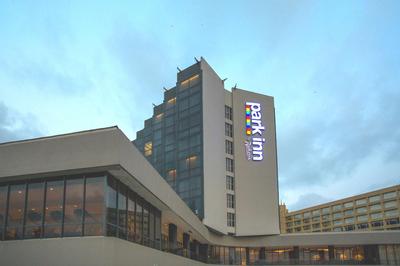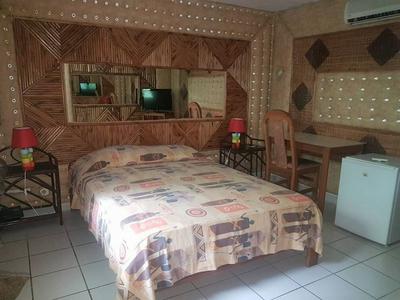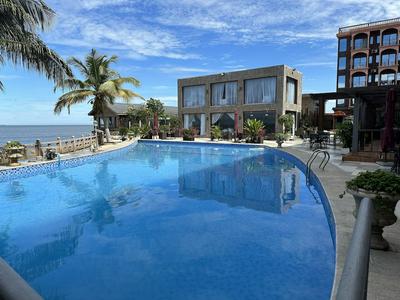When to visit Gabon during the year?
Gabon has a tropical climate, characterized by humid weather and a wet season from October to May. The dry season, which stretches from June to September, is generally regarded as the best time to visit, offering sunny days perfect for exploring the country's magnificent parks and wildlife. During the dry season, many tourists flock to Gorongosa National Park and Loango National Park for wildlife spotting and outdoor activities. In contrast, while showers may occur in the wet season, this is also when the lush greenery at places like Loango National Park is at its peak, making it a great time for photography enthusiasts.
How to get to Gabon?
If you're planning a trip to Gabon, you have several options to reach this unique West African country. The primary gateway to Gabon is Libreville International Airport, which offers international flights from major global cities. Additionally, for travelers already in West Africa, bus and road connections can provide access to Gabon's neighboring countries. Below is a breakdown of transport options:
- Libreville International Airport is the main hub with direct flights from Paris (Charles de Gaulle), Dubai (DXB), Brussels (BRU), and other major cities.
- Other international routes include connections from Accra (ACC), Nairobi (NBO), and Johannesburg (JNB).
- Low-cost airlines may operate in the region but are less common.
- Flight times vary; a direct flight from Paris typically takes around 8 hours.
- Main bus stations in Libreville serve routes to major cities such as Franceville and Port-Gentil.
- Bus connections are also available to neighboring countries like Cameroon and Equatorial Guinea.
- International train services are limited, with the network primarily servicing domestic routes.
- Travelers can take a train from Libreville to Franceville, with a journey time of about 12 hours.
- Gabon has several main highways, the most notable being the N1 connecting Libreville to Franceville.
- Distances from neighboring countries vary, with Douala, Cameroon being around 300 km away.
- The roads can be challenging, with some areas requiring a sturdy vehicle and attention to road conditions.
Tourist activities in Gabon
Gabon offers a diverse range of activities catering to nature enthusiasts, culture seekers, and adventure travelers alike. The country's landscape is marked by lush rainforests, stunning coastlines, and vast savannahs. Here are some of the highlights:
- Wildlife Viewing: Gabon is home to numerous national parks, including the famous Loango National Park, where you can see elephants, gorillas, and various bird species.
- Hiking and Eco-Tours: Explore the breathtaking landscapes in parks like Akanda National Park, famous for its mangroves and stunning coastal views.
- Cultural Experiences: Visit Libreville's markets and museums to immerse yourself in the rich culture and heritage of the Gabonese people.
- Beaches and Water Activities: Relax on the serene beaches of Pointe Denis or participate in water sports such as sailing and fishing.
The various regions from the capital, Libreville, to the interior jungles offer unique experiences that reflect the beauty and culture of Gabon.
Accommodation in Gabon
Gabon provides a range of accommodation options, ensuring travelers can find something that suits their needs and budget. In Libreville, you will find luxury hotels and comfortable mid-range options that usually cost between $100 and $300 per night. Away from the capital, eco-lodges are a popular choice for those looking to explore the natural beauty of Gabon, often pricing around $50 to $150 per night depending on amenities. For budget travelers, guesthouses and hostels in smaller towns provide affordable lodging, typically around $20 to $40 per night. Expect seasonal variations, especially in peak tourist months, where prices can fluctuate.
Food in Gabon
The cuisine of Gabon reflects its rich cultural diversity, with influences from different ethnic groups. Staples include cassava, plantains, and a variety of seafood, thanks to the country's extensive coastline. Among the must-try dishes are 'Poulet Nyembwe' (chicken in palm nut sauce) and 'Fufu' (a starchy side made from cassava). Popular local beverages include 'Palm Wine' and 'Bikutsi,' a traditional drink. Meals at local restaurants typically cost around $5 to $15, making it easy to sample the delicious offerings without breaking the bank.
Important numbers and information
- Emergency Services: Police - 17, Ambulance - 141, Fire Brigade - 18
- Embassy Contacts: Embassy of the United States - Libreville
- Airports: Libreville International Airport, 1320 Avenue du Général de Gaulle, Libreville
- Currency: Central African CFA franc (XAF), accepted alongside credit cards
- Visa/Passport: Visa required for most nationalities; check local regulations before traveling
What to see in Gabon?
From bustling cities to serene national parks, Gabon has a wealth of attractions. Start in the capital, Libreville, where you can explore the National Museum of Arts and Traditions and the vibrant markets. Heading south, Loango National Park is known for its stunning beaches and rich wildlife, making it a must-visit for nature enthusiasts. Franceville, nestled in the southeast, provides access to lush jungles and is famous for its artisanal crafts. Other notable spots include the scenic Pongara National Park and the colonial architecture found in Port-Gentil. Each location reveals a piece of Gabon's charm and beauty.
History, geography and climate
Gabon has a rich history influenced by indigenous tribes and later European colonization, particularly by the French. The country gained independence in 1960 and has since maintained a stable political climate. Geographically, Gabon is diverse, featuring coastal regions along the Atlantic Ocean, interior plateaus, and dense rainforests. The climate is primarily tropical with an average annual temperature ranging from 25°C to 30°C, making it warm and humid, especially during the rainy season.
Population and culture
Gabon has a population of approximately 2.2 million people with a rich cultural tapestry woven from various ethnic groups, including the Fang, Myene, and Nzebi. While French is the official language, many local languages, such as Fang and Myene, are widely spoken. Gabon’s diverse cultural traditions are reflected in vibrant festivals, music, and dance. Independence Day on August 16 is celebrated nationally, showcasing traditional dances and customs unique to the country. Gabonese culture is marked by communal celebration and respect for elders, providing a unique perspective on West African life.

